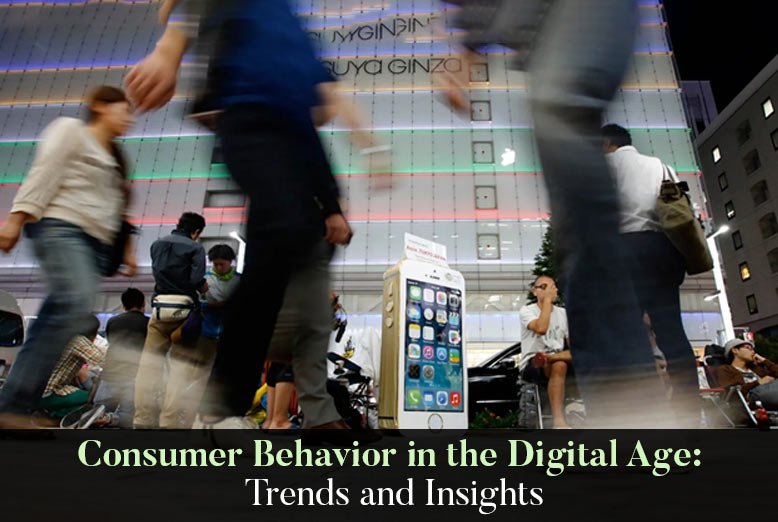The digital age has significantly transformed consumer behavior, driven by rapid advancements in technology and the increasing reliance on digital platforms. As consumers spend more time online, their habits and expectations are evolving, leading businesses to adapt and innovate to meet these new demands. This article delves into the shifting patterns of consumer behavior, exploring the impact of mobile apps, online services, and digital innovations. A particular focus is placed on how these changes affect various industries, including the growing popularity of online betting and the best betting sites catering to this trend.
The Rise of Digital Platforms
The growth of e-commerce has revolutionized shopping, with consumers now favoring the convenience and accessibility of online stores. In 2023, global e-commerce sales reached $6.31 trillion, up from $4.28 trillion in 2020. This shift is partly due to the increasing adoption of mobile shopping, which accounted for 72.9% of e-commerce sales in 2021. The ability to compare prices, read reviews, and make purchases from anywhere has driven this trend, with online marketplaces like Amazon and Alibaba dominating the market.
Social media platforms have become critical in shaping consumer behavior. As of 2023, 4.89 billion people worldwide use social media, representing 62% of the global population. Brands leverage platforms like Instagram, Facebook, and TikTok to engage with consumers, create personalized experiences, and drive sales. Social commerce is also on the rise, with 77% of consumers saying they are more likely to purchase from a brand they follow on social media. This trend highlights the importance of social media in building brand loyalty and influencing purchasing decisions.
Mobile Apps and Consumer Engagement
Mobile devices have become an integral part of daily life, with 6.92 billion smartphone users worldwide in 2023. This widespread adoption has led to a surge in mobile app usage, with consumers spending an average of 4.8 hours per day on their smartphones. Apps provide convenience, enabling users to perform tasks, shop, and entertain themselves on the go. In 2022, mobile app revenues reached $935 billion, with app stores offering over 7.26 million apps.
Brands are increasingly using mobile apps to foster customer loyalty. Loyalty programs integrated into apps offer personalized rewards, discounts, and exclusive content, encouraging repeat purchases. In 2023, 74% of consumers reported using mobile apps to interact with their favorite brands, with 85% of them saying that loyalty programs influence their shopping decisions. These apps also allow brands to collect valuable data on consumer preferences and behaviors, further enhancing personalization and engagement.
The Shift Towards Online Services
The shift from traditional media to digital streaming has been dramatic. In 2023, there were over 1.4 billion streaming service subscriptions worldwide, with platforms like Netflix, Disney+, and Amazon Prime Video leading the charge. Consumers are increasingly cutting the cord on cable TV in favor of on-demand content, which offers greater flexibility and personalized viewing experiences. The global video streaming market was valued at $60.1 billion in 2021 and is projected to reach $223.98 billion by 2028, reflecting the growing demand for digital entertainment.
The online gaming and betting industry has seen significant growth, driven by digital innovations and changing consumer preferences. In 2023, the global online gambling market was valued at $66.7 billion, with projections to reach $127.3 billion by 2027. The best betting sites have adapted to consumer demands by offering user-friendly platforms, mobile apps, and live betting options, which have contributed to the sector’s rapid expansion. The increased accessibility and variety of options available online have made betting more appealing to a broader audience.
Consumer Expectations and Digital Innovations
Consumers today expect personalized experiences, whether shopping online or using digital services. In 2023, 80% of consumers stated they are more likely to do business with a company that offers personalized experiences. This demand for customization has driven innovations in artificial intelligence (AI) and machine learning, allowing companies to analyze consumer data and deliver tailored content, recommendations, and offers. Personalization has become a key differentiator in competitive markets, influencing consumer loyalty and purchasing decisions.
With the increase in online transactions, consumers prioritize security and speed. In 2023, the global digital payments market was valued at $5.44 trillion, with 82% of consumers expressing concerns about online payment security. To address these concerns, companies have implemented advanced encryption technologies and multi-factor authentication processes. Additionally, digital wallets like Apple Pay, Google Pay, and PayPal have gained popularity for their convenience and security, with mobile payments accounting for 44.5% of e-commerce transactions in 2023.
The Role of Data Privacy in Consumer Trust
As digital services collect more consumer data, privacy concerns have become increasingly prominent. In 2023, 79% of consumers reported being more cautious about sharing personal information online due to privacy risks. This heightened awareness has prompted stricter data protection regulations, such as the General Data Protection Regulation (GDPR) in Europe, and the California Consumer Privacy Act (CCPA) in the United States. Companies that prioritize data privacy and transparency are more likely to earn consumer trust and loyalty.
Data breaches can have severe consequences for businesses, damaging their reputation and eroding consumer trust. In 2023, the average cost of a data breach was $4.45 million, with 66% of consumers saying they would stop doing business with a company that experienced a data breach. Companies must invest in robust cybersecurity measures to protect customer data and maintain trust in the digital age. Proactive communication and swift responses to breaches are also crucial in mitigating damage and reassuring consumers.
The Influence of Reviews and Ratings
Online reviews have become a significant factor in consumer decision-making. In 2023, 93% of consumers reported reading online reviews before making a purchase, with 85% trusting them as much as personal recommendations. Positive reviews can boost a brand’s credibility and attract new customers, while negative reviews can deter potential buyers. Companies are increasingly focusing on managing their online reputation by encouraging satisfied customers to leave positive feedback and promptly addressing any negative comments.
Ratings also play a crucial role in shaping consumer behavior. Products and services with high ratings are more likely to be purchased, as consumers perceive them to be of higher quality. In 2023, 72% of consumers said they would not buy a product with a rating lower than four stars. Businesses must strive to maintain high ratings by delivering exceptional products and services, as well as by actively engaging with customers to resolve any issues that could negatively impact their ratings.
The Future of Consumer Behavior in the Digital Age
Emerging technologies such as virtual reality (VR), augmented reality (AR), and blockchain are expected to further transform consumer behavior in the coming years. In 2023, the global AR and VR market was valued at $31.12 billion, with projections to reach $300 billion by 2024. These technologies offer immersive experiences, allowing consumers to interact with products and services in entirely new ways. For example, AR is being used in retail to enable customers to try on clothes before purchasing, while blockchain technology is enhancing transparency and security in online transactions.
Sustainability is becoming a key consideration for consumers, influencing their purchasing decisions. In 2023, 68% of consumers reported being willing to pay more for products and services from companies committed to sustainability. This shift towards sustainable consumption is driving businesses to adopt eco-friendly practices, such as reducing carbon footprints, using recyclable materials, and supporting ethical sourcing. Brands that align with consumers’ values on sustainability are likely to gain a competitive edge in the digital age.
Conclusion
Consumer behavior is continuously evolving in response to digital innovations, with trends such as the rise of mobile apps, the shift towards online services, and the growing demand for personalization shaping the future of commerce. As businesses navigate these changes, they must prioritize consumer needs and expectations, leveraging technology to enhance engagement, trust, and loyalty. The digital age presents both challenges and opportunities, and those who can adapt to the shifting landscape will thrive in this new era of consumerism.
Also Read: Mastering the Basics of Business Management














